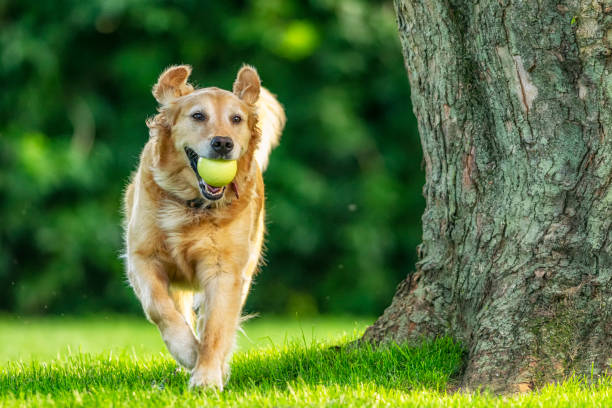Every dog is an individual, with unique personalities, preferences, and, yes, even sensitivities. Just like humans, dogs can experience discomfort or anxiety in response to certain factors. Understanding these sensitivities is important for building a strong, trusting bond with your furry friend and ensuring their overall well-being.
Think of your dog's sensitivities as subtle whispers they use to communicate their needs. Ignoring these whispers can lead to confusion, frustration, and even behavioural problems in your pup. By observing your dog's body language and reactions, you can learn what triggers their discomfort, be it loud noises, crowded spaces, strangers, or even certain types of touch. Once you understand your dog's sensitivities, you can create a safe and comfortable environment for them.
Lack of Routine and Structure
Lack of routine and structure can really throw our furry friends off balance. Dogs thrive on predictability, and when their schedule is all over the place, it can leave them feeling anxious and uncertain. Imagine if your dinner time changed every day, or if you weren't sure when you'd get to go for a walk. That's how our pups feel when their routine is inconsistent.
But don't worry, there are ways to help them feel more secure and settled. One of the best things we can do for our dogs is to establish a consistent daily routine. This means feeding them at the same times each day, taking them for walks on a regular schedule, and sticking to a consistent bedtime routine. Dogs are creatures of habit, so having a predictable routine helps them know what to expect and when. It can also make training easier, as they'll learn to anticipate when certain activities will happen.

Ignoring Basic Needs
Proper nutrition and regular exercise are essential for keeping our canine companions happy and healthy. Just like us, dogs need a balanced diet and plenty of physical activity to thrive. When they don't get the nutrition and exercise they need, it can lead to a whole host of health problems, including obesity, joint issues, and even behavioral problems.
But the signs of neglecting basic needs in dogs can be subtle, and it's not always easy to recognize when our furry friends are missing out on essential care. They might become lethargic, gain or lose weight unexpectedly, or show signs of stress or anxiety. Paying attention to these subtle cues can help us identify when our pups aren't getting the care they need and take steps to remedy the situation. After all, our dogs rely on us to provide for their basic needs, and it's up to us to make sure they're happy, healthy, and well cared for.
Punitive Training Methods
Punishment-based training techniques can have negative effects on dogs and their behaviour. These methods, which rely on using punishment or aversive stimuli to discourage unwanted behaviours, can lead to fear, anxiety, and even aggression in dogs. Instead, positive reinforcement training techniques focus on rewarding desired behaviours with treats, praise, or other rewards. This approach helps build trust and strengthens the bond between dogs and their owners while encouraging them to repeat behaviours that earn them rewards. Positive reinforcement training is not only more effective but also more humane, allowing dogs to learn in a safe and supportive environment.

Lack of Socialization
Socialization is crucial for dogs to develop appropriate behaviour and build confidence in various situations. Proper socialization helps them feel comfortable and secure around other dogs, people, and new environments. It also reduces the likelihood of fear-based behaviours and aggression later in life. To ensure your dog is well-socialized, expose them to different experiences, people, and animals from a young age.
Gradually introduce them to new environments and situations, always monitoring their reactions and providing positive reinforcement for calm and confident behavior. Regular socialization outings, such as visits to the park or attending training classes, can help your dog become a well-adjusted and friendly companion.
Overwhelming Environments
Recognizing signs of overstimulation in dogs is essential for their well-being. These signs may include panting, pacing, excessive drooling, or seeking isolation. When you notice these signs, it's important to create a calm and comfortable environment for your dog to help them relax.
Remove any triggers causing the overstimulation, such as loud noises or crowded spaces, and provide a quiet area where your dog can retreat. Use soothing techniques like gentle massage or calming music to help them unwind. By creating a serene atmosphere, you can help your dog feel safe and secure, reducing their stress levels and promoting overall happiness.
Misunderstanding Canine Body Language
Understanding common misinterpretations of dog behaviour is key to fostering a strong bond with your furry friend. Many people misinterpret certain behaviours, such as growling or barking, as signs of aggression when they may actually indicate fear or discomfort. Learning to read and respond to dog cues is needed for effective communication and positive interactions. Pay attention to your dog's body language, such as tail wagging, ear position, and eye contact, to better understand their emotions and intentions.
Invasive or Rough Handling
Rough handling can lead to fear, anxiety, and even physical injury in dogs, affecting your dog's trust and confidence.
By employing gentle handling techniques and approaches, such as using positive reinforcement, respecting their boundaries, and avoiding harsh corrections, you can build a strong and trusting relationship with your canine companion. Treat your dog with kindness, patience, and respect, and you'll both enjoy a happier and healthier bond.
Unwanted Physical Affection
Just like humans, dogs have boundaries and preferences when it comes to physical contact. Respectful ways to show affection to dogs include allowing them to initiate contact, using gentle touch and soothing tones, and observing their body language for signs of discomfort or stress. By respecting their personal space and preferences, you can build trust and strengthen your bond with your furry friend while ensuring their comfort and well-being.
By being mindful of their likes, dislikes, and individual needs, we can create a supportive and enriching environment that promotes your pet's happiness and well-being. Whether it's respecting their personal space, providing positive reinforcement during training, or offering appropriate outlets for play and exercise, our attentiveness to their preferences fosters mutual understanding and strengthens the bond between humans and dogs.












